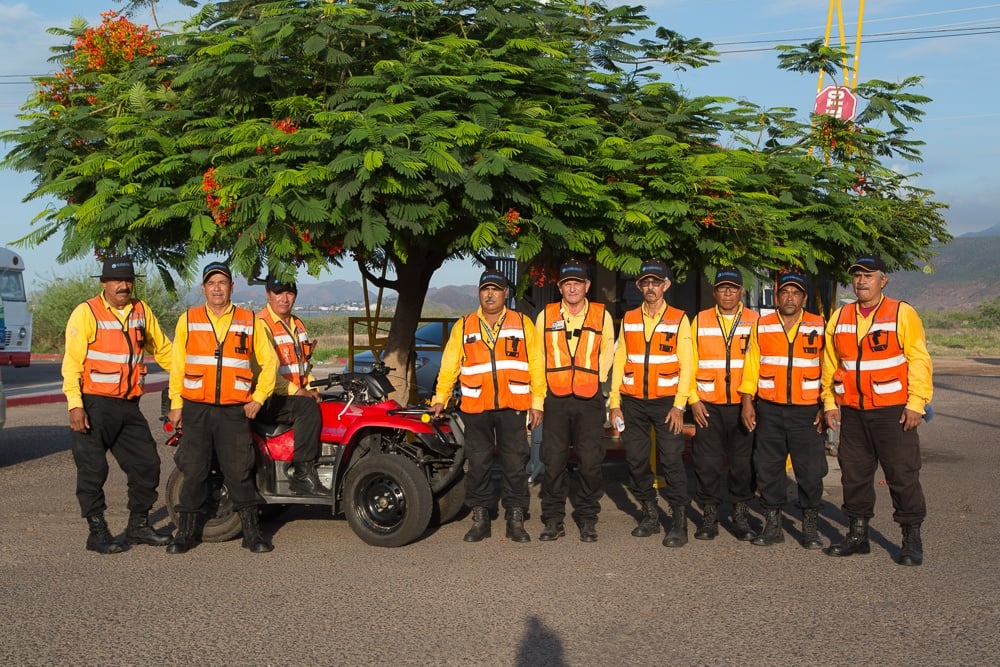Companies that are committed to excellent employee health and safety are among the most successful when it comes to manufacturing in Mexico. In part two of our overview of industrial health and safety regulations in Mexico, we explore the laws governing these issues and the must-know regulatory agencies that enforce them.
In part one of our post on industrial health and safety regulations in Mexico, we discussed the basics of manufacturing hazards, the responsibilities of both employer and employee, and how health and safety standards compliance is verified. To fully comprehend how the regulations work, however, it is important to understand the legal backbone of Mexico's workplace protections.
Workplace protection standards and the Mexican Federal Labor Law
The foundation of Mexican labor law is based on Article 123 of the Mexican Constitution of 1917. This legislation is predominantly concerned with ensuring that all workers benefit from "dignified work" and establishes standard guidelines for health and safety in the workplace. Under these guidelines, employers are required to present employees with a safe workplace.
Employers are also accountable for accidents and illnesses that may occur. The guidelines establish that the burden of implementing federal constitutions and legislative guarantees concerning safety and health in the workplace falls to the employer. Each employer is required to issue its own rules and regulations to guarantee workplace safety.
In Mexico, health and safety standards are mandated through three sets of regulations: the Federal Labor Law, additional federal legislation, and instructions issued by the Secretariat of Labor and Social Welfare (STPS).
Additional legislation governing industrial health and safety in Mexico
Mexico's Social Security Law
In Mexico, the Social Security Law provides a system of financial protection for Mexican citizens, including workers' compensation benefits. The system is funded by a mandatory employer-sponsored charge that is based on employee wages. In addition to the funding of hospitals and the provision of full medical coverage to registered employees, the IMSS (the Mexican Institute for Social Security) helps subsidize employer costs for:
- Work-related risks
- Health and maternity insurance
- Disability pension and life insurance
- Retirement, advanced age, and old-age pension
- Child care and other social benefits
Mexico's Federal Regulation of Occupational Health and Safety
This legislation sets out numerous safety and health rules, maintains detailed employer and employee responsibilities, and enacts several initiatives to improve the manufacturing environment. Based on the regulations in the legislation, the STPS issues a series of directives that provide for precise workplace standards.
General Regulations for Inspection and Penalties for Violations of Labor Legislation
The SPTS governs inspection and penalty legislation. In general, inspections are designed to ensure that employers comply with obligations that include general work conditions, workplace health and security, employee training, and any other applicable provisions.
Mexico's Federal Measures and Standards Law
This legislation aims to promote increased participation by public, private, scientific, and consumer representatives in standard-setting compliance. The goals outlined in the law are designed to establish testing certification, form a regulatory body around compliance, and enhance clarity, standardization, and efficiency in establishing Official Mexican Norms (NOMs).
Workplace standards compliance and Official Mexican Norms (NOMs)
Normas Oficiales Mexicanas, known as Official Mexican Norms (NOMs) in English, are a set of specific workplace rules designed to measure compliance with health and safety standards in Mexico. In the manufacturing environment, NOMs address machinery and equipment safety issues, handling hazardous waste, fire protection, and industrial building quality, among many others. Generally, industrial health and safety NOMs fall into three major categories:
- Safety standards that address accident risks in processes and facilities
- Health standards that address chronic or acute risks from factors like noise, light, temperature, poor air quality, toxins, carcinogens, or other contaminants
- Structural standards that address institutions and procedures such as medical care, joint committees, information management, and hazard reporting
Though federal agencies have the authority to develop and issue NOMs within their jurisdiction, NOMs do not have to be approved by the legislature and should be revalidated every five years. As a result, standards are flexible and can be updated, modified, or eliminated efficiently when necessary.
Regulatory bodies handling industrial health and safety laws in Mexico
Knowing the key agencies involved in updating and enforcing labor laws in Mexico is essential for understanding legislation. Though there are numerous regulatory entities, the principal agencies that regulate industrial health and safety in Mexico include the STPS, CNN, IMSS, NACOSH, and joint safety committees.
The Secretariat of Labor and Social Welfare (STPS)
The SPTS performs several functions, including creating procedural safety and health standards, conducting inspections, setting penalties, maintaining risk statistics, and distributing relevant information, among many others.
The National Standardization Commission (CNN)
The National Standardization Commission (in Spanish, the Comision Nacional de Normalizacion, or CNN) coordinates the health and safety standardization policy at the national level. The CNN currently comprises 43 members among agencies, federal administration entities, chambers, and other associations. It develops a yearly schedule for the formation, adjustment, and deletion of NOMs.
The Mexican Institute for Social Security (IMSS)
The IMSS is a national state-run health-maintenance and social security organization that administers the workers' compensation system in Mexico. Covered employers register workers and pay premiums to IMSS, which delivers compensation to those that become injured or ill while on the job. Premiums are designed to reward workplaces with excellent safety and health performance and to penalize poor performance.
The National Advisory Commission on Occupational Safety and Health (NACOSH)
The NACOSH is Mexico's OSHA equivalent (the Occupational Safety and Health Administration as commonly referenced in the United States) and conducts studies, proposes prevention measures, and reviews draft standards.
Joint Health and Safety Committees in Mexico
Mexico's Federal Labor Law establishes three levels of joint committees, each with occupational representatives for health and safety: workplace committees, state advisory committees, and the national advisory commission. Joint committees are found in every workplace deemed necessary and must be composed of equal numbers of employer and employee representatives. Committees monitor compliance and support government inspections, including investigating accidents, preparing related reports, proposing preventive measures, and performing follow-up inspections.
Get more information on health and safety standards and legislation in Mexico
Have questions about the laws or associated regulatory bodies related to industrial health and safety? Compliance with these regulations is one of the most critical aspects of operation, but understanding the law's complexities can be challenging, especially for newcomers to manufacturing in Mexico. There are several ways you can learn more:
- Contact Tetakawi expert to get your questions answered directly
- Explore part one of our post on industrial health and safety regulations in Mexico to get a firm understanding of considerations for maintaining a safe workplace in Mexico
- Download the free guide to Navigating Mexican Labor Laws for an in-depth exploration of the Mexican labor system and coverage of:
- Mexican Employee Wages
- Mexican Employment Contracts
- Overtime and Employee benefits in Mexico
- The Mexican Work Week
- Labor Unions in Mexico
- The Mexican Labor Reform of 2012
Subscribe
Sign up and stay informed with tips, updates, and best practices for manufacturing in Mexico.





